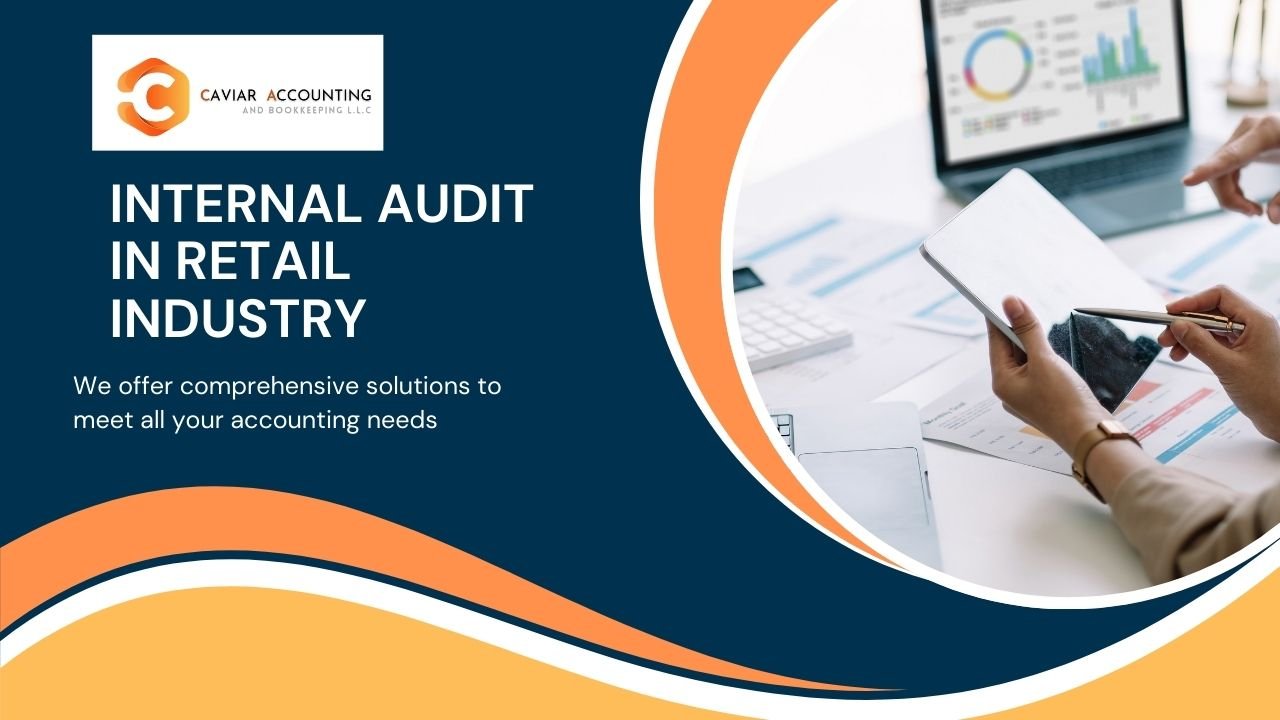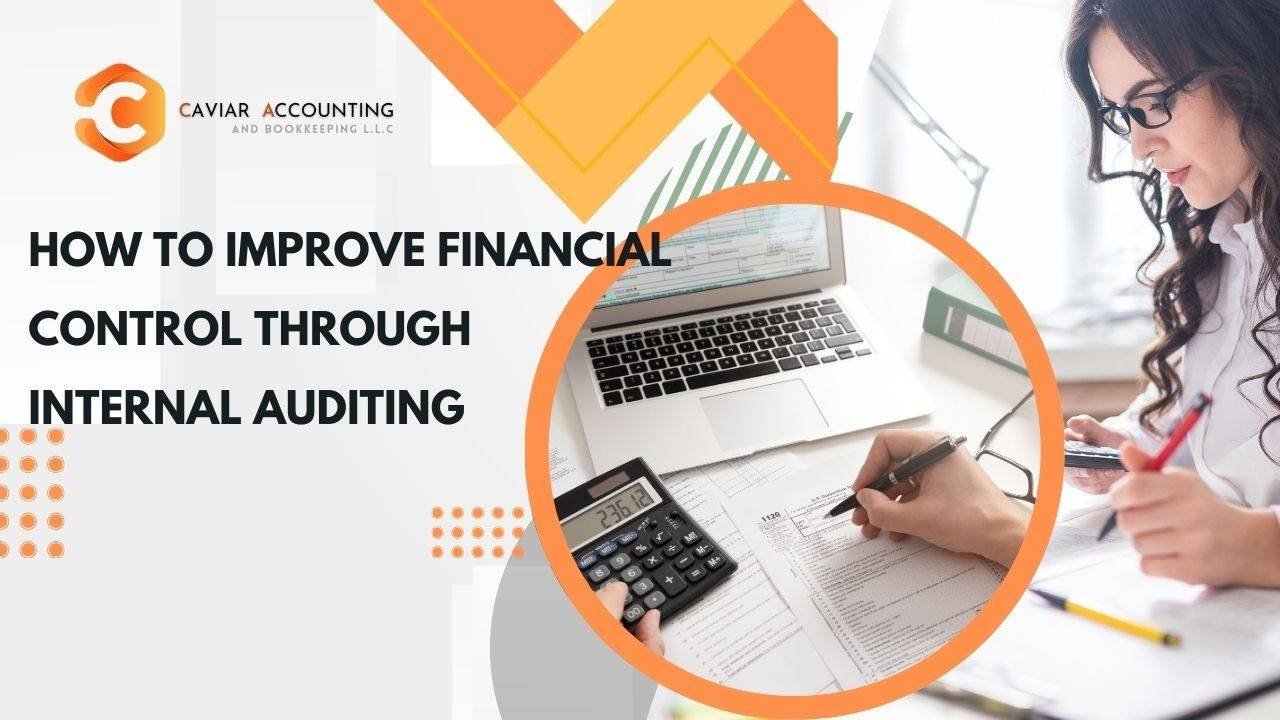Internal Audit In Retail Industry: A Smart Move For UAE Retailers

Internal audit is among the most vital aspects of business expansion and efficiency. Internal audit is an essential tool to help retailers not only to increase compliance, but also to ensure precision in their processes and procedures. Internal audit assists in analyzing and auditing a range of operational and financial areas to help businesses maintain efficient measures that increase efficiency, prevent fraud, and develop risk mitigation strategies.
Through the analysis of procedures, policies, and controls for inventory management and financial management, as well as receiving and supply chain procedures, internal audits have significantly enhanced the operational effectiveness and risk mitigation of retail companies. This blog explains how internal audits affect the different aspects of a company to increase efficiency and decrease risk.
Understanding Internal Audits In Retail
Internal audits are an independent and thorough examination of an organization’s internal controls, procedures, policies, and processes that govern every aspect of a company’s operations. It doesn’t matter if it’s related to IT, supply chains, finance, or risk management procedures; the audit provides a detailed analysis of all these aspects to discover gaps, suggest improvements, and recommendations to improve the efficiency of the business overall.
Why Internal Audit Is Crucial For Retail
1.Operational efficiency
Operational audits for retail stores are a significant factor in improving the efficiency of the retail store. When auditing processes are correctly implemented, an organization can boost efficiency by as much as 25%.
2. Improved inventory management
Correct inventory records are essential for retail. Internal audits ensure that stock levels are reported correctly to prevent shrinkage and increase the efficiency of stock turnover.
3. Financial accuracy and VAT compliance
In the wake of the unveiled VAT in the UAE, retailers must keep complete financial records.
4. Better decision making
Audit reports can provide valuable insight into the performance of businesses as well as internal control. Retail owners and managers can make better informed data driven choices.
5. Building Stakeholder Trust
If you’re dealing with partners, investors, and government departments, a practical internal audit framework displays transparency as well as accountability, along with professionalism.
How To Improve Financial Control Through Internal Auditing

1. Ensuring accurate financial reporting
One of the principal objectives for internal auditing would be to confirm the credibility of financial reports. Auditors determine whether financial statements, such as those of the balance sheet, the income statement and the cash flow reports accurately reflect the economic state of the company.
Improvement Actions:
- Cross-check reports against the ledgers and transaction records.
- Verify that all financial entries are correct, correctly classified and accompanied by documents.
- Conciliate discrepancies to ensure fullness and exactness.
Benefits:
- Financial statements that show the truth and fairness of
- More accurate decision-making information
- Improved trust among creditors, investors and regulators.
2. Assessing budgeting and financial planning
Internal audits aid in improving the financial controls by looking at the process for budgeting in a company. They will identify the areas in which budgets may be exceeded or not being adhered to, and ensure that funds are appropriately allocated.
Improvement actions
- Comparing the actual financial performance against budgeted projections.
- Examine areas of excessive expenditure
- Recommend changes in the upcoming budgeting cycles that better align with the financial goals.
Benefits:
- Effective utilisation of financial resources
- Aligning spending to business objectives
- Better long-term financial planning
3. Improving cash flow management
Internal audits play a vital part in ensuring that businesses are operating with proper money flow control processes that are in operation, which reduces the possibility of liquidity crisis.
Improvement actions
- Examine the accounts receivable and payable procedures.
- Examine your cash handling processes
Benefits:
- Cash flow is more predictable
- Improved working capital management
- Lower risk of insolvency
Best Practices For Retail Internal Audit
1. Leverage data analytics
Utilize accurate data analysis and tools to spot problems, errors, or fraud. This will allow you to make more effective recommendations for improving the controls of your business.
2. Standardize audit procedures
Make audit checklists that are uniform, as well as templates and reporting guidelines. These will guarantee that audits conducted internally are carried out thoroughly and cover all aspects of the company.
3. Ongoing training and development
Make sure your audit staff has access to the latest technologies and legislation. Training helps the team adjust to changing laws and trends and deliver more effective results.
Core Focus Areas Of Retail Internal Audits
1. Inventory management and shrinkage control
Inventory is the foundation of every retail company. Internal audits look at how inventory is monitored and stored. They also examine how inventory is checked to ensure that shrinkage is not caused by theft, damage, or a mishap.
2. Cash handling and financial controls
Internal audits examine the efficiency of cash reconciliation, point-of-sale systems, refund processes, and segregation of tasks.
3. Sales and revenue assurance
Auditors verify that the transactions of sales are correctly recorded and reported. This involves conducting tests on the POS system, discount control, and loyalty programs, as well as e-commerce integrations.
Our Internal Audit Services For Retail
We offer comprehensive internal audit assistance specifically tailored to retail environments.
1. Inventory and stock audits
We carry out physical counts of stock and evaluate the effectiveness of the tracking of inventory systems, and find out if there are discrepancies, in order to decrease shrinkage and increase precision.
2. Cash handling and POS controls
We examine all cash registers you have, point of sale (POS) systems, as well as reconciliation procedures to protect you from errors and fraud.
3. Sales and revenue audits
4. VAT and regulatory compliance
We make sure that your business is compliant in accordance with UAE Tax laws (or other tax laws in your area), as well as labor laws and specific licensing requirements for the industry.
Final Thoughts
In Caviar Accounting, we are familiar with the specific challenges of the retailer sector within the UAE. Our unique auditor services can assist retailers in improving their internal controls and improving overall efficiency.
Ready to Strengthen Your Retail Operations?
A well-run internal audit will help your business in the retail sector reduce losses, increase profitability, and help build trust with all long-term stakeholders. We can help you take over your processes and make better decisions based on data.
Get In TouchFAQ
1. What areas should be concentrated on in an internal audit for retail?
Internal audits are our core services. They generally comprise:
- Management of inventory and shrinkage control
- POS system accuracy
- Reconciliation and handling of cash
- Revenue and sales reporting
- Compliance with VAT
- Employee oversight and risk of fraud
- Performance at the store level and SOP compliance
2.Why should a retail business select an accounting firm to conduct internal audits?
We bring together extensive retail industry knowledge along with technical expertise in accounting and compliance. Our team takes an approach based on risk and data to provide actionable, practical insight that can help retailers reduce risk, boost performance, and ensure full compliance with regulatory requirements.
3. How often should retail businesses conduct Internal audits?
Internal audits are generally recommended on a quarterly or semi-annual basis, based on the complexity and size of your company. However, high transaction volume retailers may benefit from more frequent audits or ongoing monitoring.
4. What are some main components of Internal Auditing?
Internal auditing can be described as a planned procedure designed to assess and improve the control systems, internal procedures for risk management, and governance. The main aspects of internal auditing comprise:
1. Internal Control Evaluation
Reviewing procedures, policies, and procedures to determine how well they can prevent mistakes as well as fraud, inefficiencies, and other errors. This includes operational controls, financial controls, and IT security measures.
2. Audit Planning
The development of an audit plan is based on your risk analysis. This involves defining the audit’s scope and objectives, timelines, and the allocation of resources.

